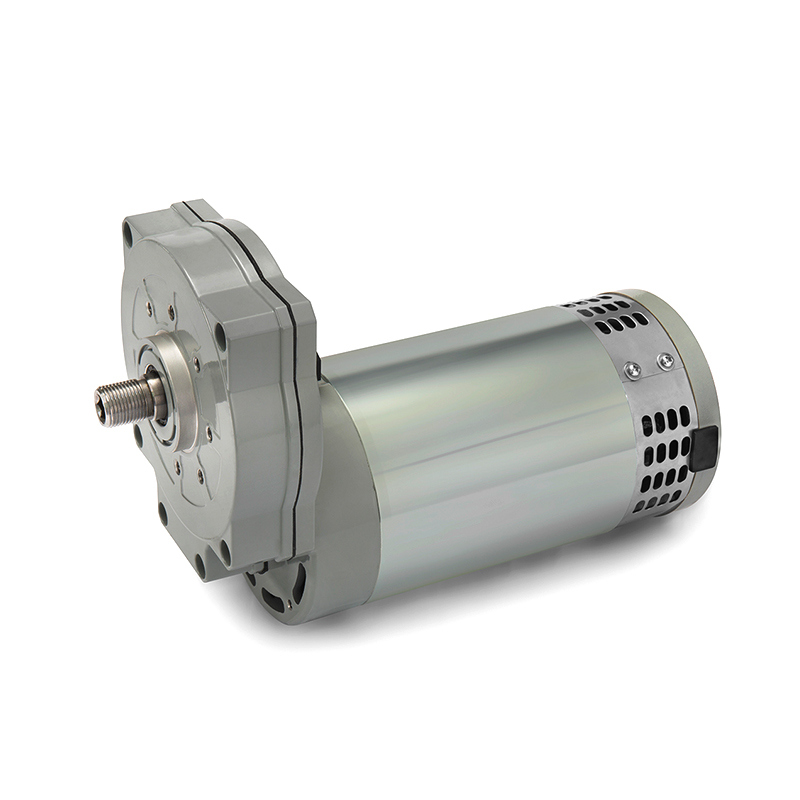Cleaning Machine Motor: The Power Behind Efficient Cleaning Solutions
The motor in a cleaning machine is the heart of the equipment, providing the necessary power to drive various cleaning operations. Whether it’s a vacuum cleaner, floor scrubber, carpet extractor, or pressure washer, the performance of these machines is heavily reliant on the motor that powers them. A high-quality motor ensures efficient cleaning, reliability, and durability, making it a critical component of any cleaning system.
Motors in cleaning machines play a vital role in driving the mechanical processes needed for effective cleaning. They power various functions such as suction, agitation, scrubbing, and high-pressure spraying. For example, in a vacuum cleaner, the motor generates the suction force necessary to remove dirt and debris from floors and carpets. In industrial floor scrubbers, the motor drives the brushes and the water recovery system, ensuring thorough cleaning of large surfaces.
Without a reliable motor, cleaning machines would struggle to perform their tasks efficiently, leading to poor cleaning results, higher maintenance costs, and more downtime. Thus, investing in a high-quality motor is essential for ensuring that cleaning operations run smoothly and effectively, whether in a household, commercial, or industrial setting.

Several types of motors are used in cleaning machines, each with distinct features and advantages. Understanding these motor types can help in choosing the best motor for specific cleaning needs.
Universal motors are commonly used in portable cleaning machines like vacuum cleaners, handheld steamers, and smaller carpet cleaners. They can operate on both AC and DC power sources, making them versatile for different applications. Universal motors are compact, lightweight, and offer high-speed operation, making them ideal for household cleaning machines that need strong suction or high-speed brush rotation. However, they tend to produce more noise and wear out faster compared to other types of motors.
Induction motors are widely used in larger and more robust cleaning machines, such as industrial floor scrubbers, pressure washers, and heavy-duty carpet extractors. These motors are known for their durability, efficiency, and quiet operation. Induction motors run on AC power and are ideal for long-term, continuous cleaning tasks in commercial or industrial environments. Their ability to operate at a constant speed with low maintenance requirements makes them reliable choices for heavy-duty cleaning equipment.
Brushless DC motors have gained popularity in recent years due to their energy efficiency and long lifespan. These motors are commonly found in high-performance, cordless cleaning machines such as robotic vacuums, battery-powered pressure washers, and other portable cleaning equipment. BLDC motors use electronic control systems to operate without physical brushes, reducing wear and tear, noise, and the need for frequent maintenance. They also offer better control over speed and torque, making them ideal for modern, energy-efficient cleaning devices.
Key Considerations When Choosing a Cleaning Machine Motor
Choosing the right motor for a cleaning machine depends on various factors, including the application, the desired performance, and the operating environment. Here are some key considerations:
The power rating of the motor is one of the most important factors to consider. For heavy-duty cleaning tasks, such as pressure washing large surfaces or scrubbing industrial floors, a motor with a high power output is essential. Smaller household machines, on the other hand, can operate efficiently with lower-powered motors. Ensuring the motor’s power aligns with the cleaning task at hand is critical to achieving optimal performance.
Motors in cleaning machines need to withstand rigorous use, especially in commercial and industrial environments. Motors that offer durability and low maintenance, such as induction motors or brushless DC motors, are preferred in high-demand applications. For smaller, more portable cleaning machines, universal motors can be effective, but they may require more frequent servicing due to wear and tear.
Noise levels are another important consideration, especially in environments where noise may cause disruptions, such as hospitals, schools, or office buildings. Induction motors and brushless DC motors tend to be quieter compared to universal motors, making them ideal for use in noise-sensitive areas. Selecting a motor with lower noise output can enhance the user experience and prevent unnecessary disturbances.
Energy efficiency is becoming increasingly important, particularly for commercial and industrial cleaning machines that operate for extended periods. Brushless DC motors are known for their high efficiency, helping reduce energy consumption without compromising performance. Induction motors are also highly efficient, making them suitable for continuous use in larger cleaning systems.
Investing in a high-quality motor for cleaning machines brings several benefits, including:
A powerful and efficient motor ensures that cleaning tasks are completed quickly and effectively, reducing the time and effort required to achieve thorough cleaning results.
Motors designed for durability and minimal maintenance, such as induction motors and brushless DC motors, can significantly extend the lifespan of cleaning machines, reducing the need for frequent repairs or replacements.
High-performance motors provide stronger suction, faster brush rotation, and more powerful pressure, resulting in superior cleaning outcomes, whether vacuuming carpets, scrubbing floors, or pressure washing surfaces.
Efficient motors, especially brushless DC motors, consume less energy, leading to cost savings over time, particularly in commercial settings where cleaning equipment is used frequently.
The motor is the backbone of any cleaning machine, directly affecting its performance, efficiency, and longevity. Selecting the right motor for your cleaning equipment depends on the specific requirements of the task, whether it’s for household, commercial, or industrial use. Universal motors, induction motors, and brushless DC motors each offer distinct advantages, from portability and high-speed operation to durability and energy efficiency. By investing in a high-quality cleaning machine motor, users can enjoy better cleaning results, reduced maintenance, and enhanced operational efficiency.
-
Feedback
Hotline:0086-15869193920
Time:0:00 - 24:00


 English
English Deutsch
Deutsch italiano
italiano 中文简体
中文简体












